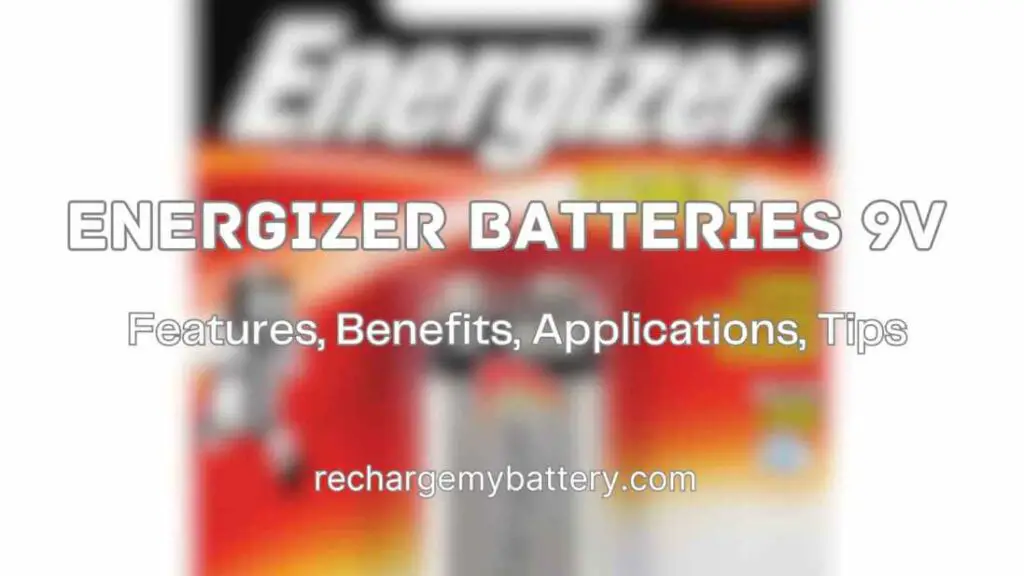Introduction
In the quest for sustainable energy solutions, solar lights have emerged as a popular choice for homeowners and environmentally-conscious individuals. They harness the power of the sun to illuminate outdoor spaces efficiently. However, a common query that arises is whether Energizer rechargeable batteries can be effectively utilized in these solar-powered devices. This article aims to provide comprehensive guidance on this topic, offering practical insights and addressing potential concerns.
Can Energizer Rechargeable Batteries Be Used in Solar Lights?
Energizer rechargeable batteries are renowned for their longevity and reliability. They are designed to hold a charge for extended periods, making them an attractive choice for various applications, including solar lights. The compatibility of Energizer rechargeable batteries with solar lights largely depends on the specific model and voltage requirements of the device. It’s essential to ensure that the battery’s voltage matches the specifications recommended by the solar light manufacturer.
Factors to Consider
- Battery Chemistry: Energizer offers a range of rechargeable batteries, including nickel-metal hydride (NiMH) and lithium-ion. NiMH batteries are a suitable choice for most solar lights due to their high energy density and rechargeable capabilities.
- Voltage Requirements: Different solar lights operate on varying voltages. It’s crucial to check the voltage rating of both the battery and the solar light to ensure compatibility.
- Capacity (mAh): The capacity of the battery determines how long the solar light will remain illuminated. Higher capacity batteries typically provide longer run times.
- Temperature Tolerance: Solar lights may be exposed to fluctuating temperatures. Ensure that the chosen Energizer battery can withstand the environmental conditions of your location.
Advantages of Using Energizer Rechargeable Batteries in Solar Lights
- Cost-Efficiency: Investing in rechargeable batteries reduces the long-term operational costs of solar lights, as they can be recharged and reused multiple times.
- Environmentally Friendly: Rechargeable batteries contribute to reducing waste and environmental impact compared to disposable alternatives.
- Reliable Performance: Energizer batteries are known for their consistent and reliable performance, ensuring that your solar lights operate optimally.
Ensuring Proper Charging of Energizer Rechargeable Batteries
To maximize the performance of Energizer rechargeable batteries in your solar lights, it’s essential to ensure they are charged correctly. Use a compatible Energizer battery charger designed for the specific type of battery you have. Follow the manufacturer’s instructions for charging times and avoid overcharging, which can reduce battery lifespan. Additionally, consider investing in a solar battery charger for a sustainable and eco-friendly charging solution.
Extending the Lifespan of Energizer Rechargeable Batteries
Proper care and maintenance can significantly extend the lifespan of your Energizer rechargeable batteries. Store them in a cool, dry place away from direct sunlight and extreme temperatures. Avoid fully depleting the battery before recharging, as partial charges can prolong battery life. Additionally, use the right type of Energizer rechargeable battery for your specific solar light model to ensure optimal performance and longevity.
Troubleshooting Common Issues with Energizer Rechargeable Batteries in Solar Lights
While Energizer rechargeable batteries are known for their reliability, occasional issues may arise. If your solar light is not operating as expected, consider the following troubleshooting steps:
- Check Battery Contacts: Ensure that the battery contacts in both the solar light and the battery compartment are clean and free from corrosion.
- Inspect for Physical Damage: Examine the battery for any signs of damage or leakage. If found, replace it immediately.
- Verify Voltage Compatibility: Confirm that the voltage of the Energizer battery matches the requirements of your solar light.
- Recharge the Battery: If the light is dim or not working, try recharging the battery to full capacity.
- Test with a Different Battery: Swap the battery with a known working one to determine if the issue lies with the battery or the solar light itself.
By following these troubleshooting steps, you can quickly identify and resolve common issues, ensuring your solar lights continue to operate efficiently with Energizer rechargeable batteries.
Conclusion
In conclusion, Energizer rechargeable batteries can indeed be used effectively in solar lights, provided they align with the device’s voltage and capacity requirements. By making this eco-friendly choice, you not only enhance the performance of your solar lights but also contribute to a sustainable energy future. Make sure to refer to the manufacturer’s guidelines and recommendations for optimal results. Illuminate your outdoor spaces with confidence, knowing you’ve made an environmentally conscious and cost-effective choice.
